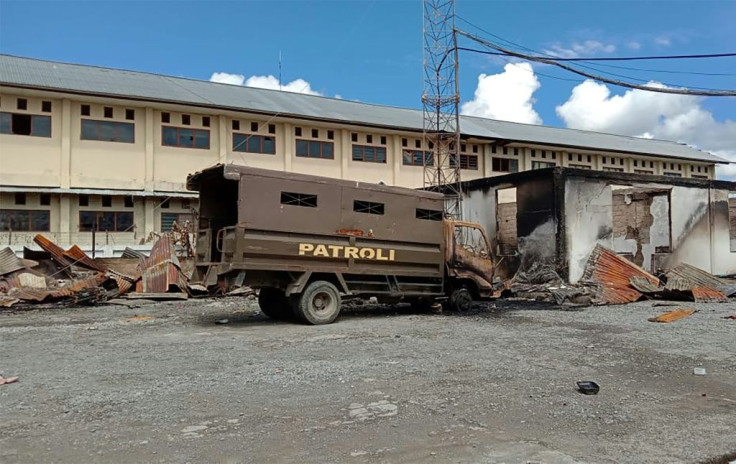Burnt, Stabbed, Beaten: Indonesian Police Detail Papua Deaths

Most of the 33 people killed in riots that paralysed Indonesia's restive Papua region this week died of stab wounds, blunt force trauma or burns, police said Wednesday, after one of the deadliest eruptions of violence in years.
Thousands fled to shelters following the outburst of bloodshed that saw civilians burned alive in buildings set ablaze by protesters on Monday, and clashes between demonstrators and security forces.
Papua, on the western half of New Guinea island, has seen weeks of protests fuelled by anger over racism against indigenous Papuans by people who have migrated from other parts of Indonesia, as well as fresh calls for self-rule in the impoverished region.
Weeks of protests broke out across Papua and in other parts of Indonesia after the mid-August arrest and tear-gassing of dozens of Papuan students, who were also racially abused, in the country's second-biggest city, Surabaya.
The fresh violence this week was reportedly sparked by racist comments made by a teacher towards students in unrest-hit Wamena city, but police have disputed that account.
On Wednesday, local police said the chaos had subsided in Wamena, leaving a trail of burnt-out buildings and charred cars in its wake.
"The situation in Wamena is now under control," said Papua police spokesman Ahmad Mustofa Kamal.
"Most victims had stab wounds, blunt object injuries and severe burns," he added.
Kamal said 29 people were known to have died in Wamena, where hundreds demonstrated and burned down a government office and other buildings on Monday. Some 66 people were injured, police said.
A soldier and three civilians also died in the provincial capital Jayapura, where security forces and stone-throwing protesters clashed Monday.
The soldier was stabbed to death and three students died from rubber bullet wounds, authorities have said, without elaborating.
On Tuesday evening, the district head office in Yalimo, near Wamena, was set ablaze, police said.
The United Liberation Movement for West Papua described this week's violence as a "massacre" and said that 17 Papuan high school students had been gunned down by Indonesian security forces.
Neither the military nor the separatist movement's claims could be independently verified.
Conflicting accounts are common in Papua and the government appears to have renewed a region-wide Internet service shutdown.
Jakarta has said the riots were meant to draw attention to Papuan independence at this week's UN General Assembly.
A low-level separatist insurgency has simmered for decades in the former Dutch colony after Jakarta took over the mineral-rich region in the 1960s.
A UN-sponsored vote to stay within the archipelago in 1969 was widely viewed as rigged, but Jakarta has long refused to consider another referendum.
The majority of Papuans are Christian and ethnic Melanesian with few cultural ties to the rest of Muslim-majority Indonesia.
© Copyright AFP {{Year}}. All rights reserved.





















